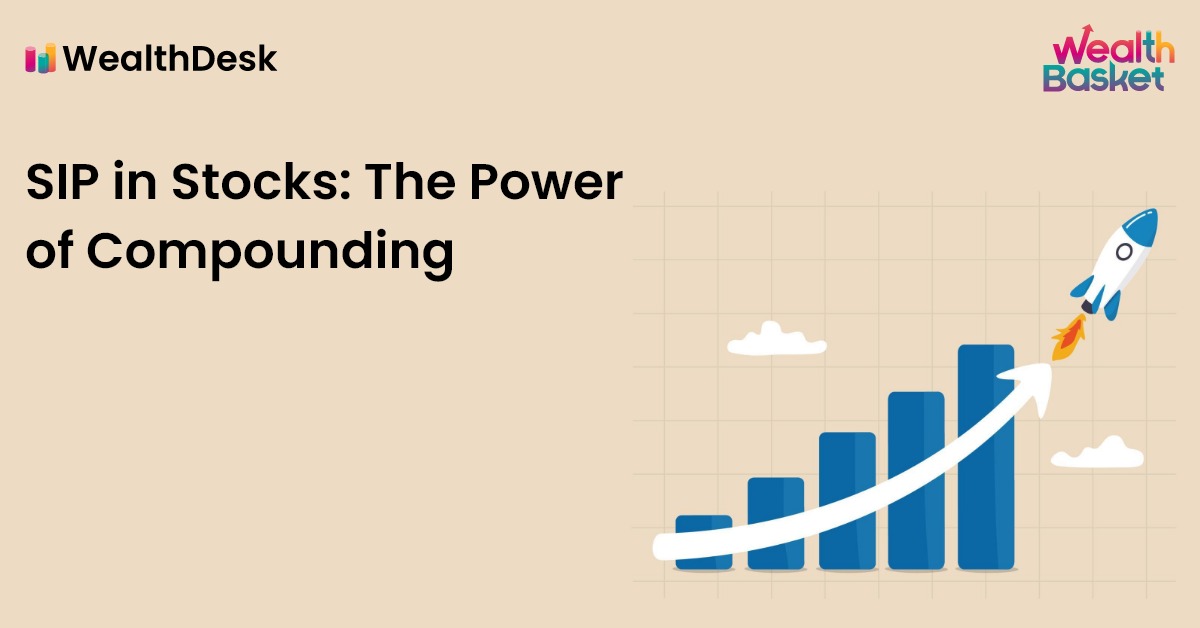The famous Greek philosopher Heraclitus once said, “Change is the only constant.” This general philosophy is applicable in the stock market, too. When one thinks about the stock market, the first thought which comes to mind is high returns, immediately followed by volatility.
Investors consider volatility a negative aspect of the stock market, as it restricts their ability to earn profits. Yet, stock market volatility shows the true essence of life: whether the market is up or down, it keeps moving forward. Investors who learn to ride this volatile wave create enormous wealth over time, even if the tide is against them in the shorter run. Before we explore strategies to generate wealth in a volatile market, let’s understand what it is.
What is a volatile market?
Market volatility refers to the degree of uncertainty linked with the stock market. It is based on the changes in the prices of securities or stocks every moment.
It can significantly impact investors’ wealth, as a sharp correction or rise in price can force investors to act, which they wouldn’t have done otherwise. For example, in 2020, the market fell by over 40% in a matter of a few sessions due to the COVID-19 pandemic. Yet, in a matter of a few weeks, it recovered and also reached new heights.
Investors who could not withstand this stock market volatility sold their investment as soon as the market started bleeding red. They did not jump in again until the market had recovered.
But smart investors considered this situation as an opportunity. They not only remained invested during volatile markets but even invested further into quality stocks. When markets recovered, they earned healthy returns.
This shows how market volatility might affect investors’ wealth. But this kind of volatility affects only those investors who are looking for short-term gains. Investors with a horizon of 5–10 years will have minimal or no effect of short-term volatility on the performance of their assets or securities.
For such investors, staying invested during volatile markets helps generate great wealth in the longer run. They can take advantage of this market volatility by using investment strategies such as SIPs.
Systematic investment plans (SIP) during volatile markets
SIP investment is a method where investors invest a fixed amount regularly, irrespective of the market cycle. All major mutual funds and brokerage houses allow the fixed amounts to be debited at regular intervals. So, whether the market is in a bull or bear run, investors can purchase a fixed number of units through SIPs in the stock market.
When the market is low, investors can purchase more units for the same amount. When the market recovers, the units bought cheaply via SIP will also go up. Thus, eventually, the cost of each unit averages out, coming at a reasonable price and generating healthy returns.
Example: An investor has invested in a mutual fund with a SIP of Rs. 5000 per month for a year. Now, based on the current price of NAV, the investor will purchase the required units.
The number of units equals the investment amount divided by the NAV. Every month, Rs. 5000 will be divided by the NAV to get several units.
| Month | NAV | Number of units |
| January | 58 | 86.21 |
| February | 63 | 79.37 |
| March | 75 | 66.67 |
| April | 40 | 125 |
| May | 35 | 142.86 |
| June | 30 | 166.67 |
| July | 28 | 178.57 |
| August | 34 | 147.06 |
| September | 60 | 83.33 |
| October | 50 | 100 |
| November | 52 | 96.15 |
| December | 48 | 104.17 |
- Total amount invested: Rs. 60,000
- Total units received: 1376.06
- NAV (December): Rs. 48
- Investment value in December: Rs. 66025.23
- Profit: Rs. 6025.23
So, over the year, the investor purchased 1376.06 units and earned a profit of Rs. 6025.03. If the same investor had invested a lump sum instead of SIP at the beginning of the year, he would need Rs. 79811.48 to get the same number of units and remain in loss.
Below are some major benefits of using SIP investments even during periods of market volatility:
-
Averages out rupee cost: Investors
can average out the purchase
cost of stocks
or mutual funds by investing a fixed amount regularly.
When the market is low, they buy more units. They get
fewer units as the market rises. SIPs help investors
manage market volatility effectively – buy more when
the market is low, and reap the rewards when it is
high. This process helps them in generating wealth
over the long term.
-
Compounding benefits: SIP investments
allow investors to earn the
benefits of compounding, motivating them to stay invested even during
extreme market fluctuations. A small amount invested
every month through a SIP helps generate great wealth
over a long horizon due to the sum compounding over
time.
- Promotes discipline and consistency: The SIP investment process forces the investor to keep investing regularly and remain so, whether the market is high or low. Staying invested for the long term and riding out some volatile moments help investors accumulate many units. With an insight over a long horizon, they can continue to remain invested and see their investment value get compounded into significant capital over time.
The stock market will grow over time, but not in a straight line. There might be many volatile weeks of fluctuations that might make investors nervous. But smart investors can use this volatility as an opportunity by investing in quality stocks or mutual funds through SIP investments and create long-term wealth. If you want to start a SIP in the stock market but are unsure where to start – With WealthBaskets, you can invest in a basket of stocks and ETFs based on a sector, theme or idea using SIP. The WealthBaskets are created and managed by leading SEBI registered experts.
FAQs
Yes, A diverse portfolio keeps investors calm and
their investments stable during
volatile markets. Investment in a
volatile market through SIP
helps balance out the ups and downs of the market
and reduces risk.
If you are looking for long-term investment, i.e.,
5, 10, or 20 years from now, then this is a good
time as ever to invest with a SIP.
No. The SIP process averages out rupee cost price. So, whether the market is high or low, an investor can make regular investments and increase wealth over time.


















